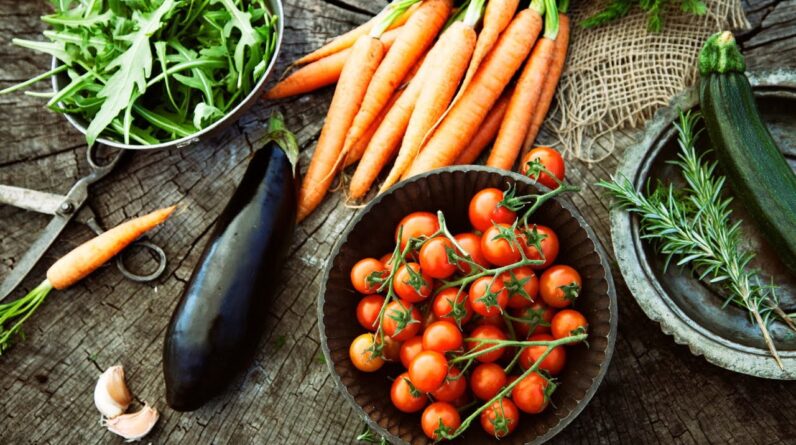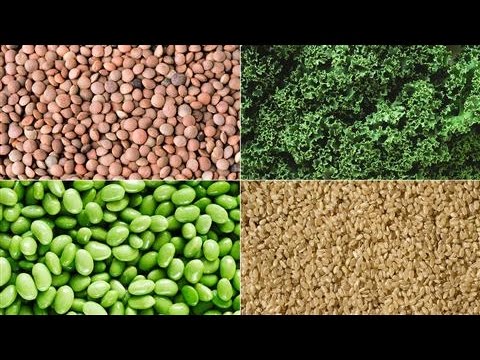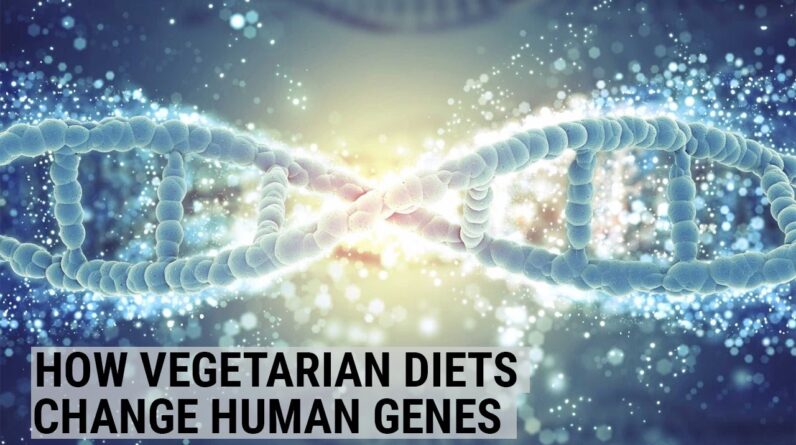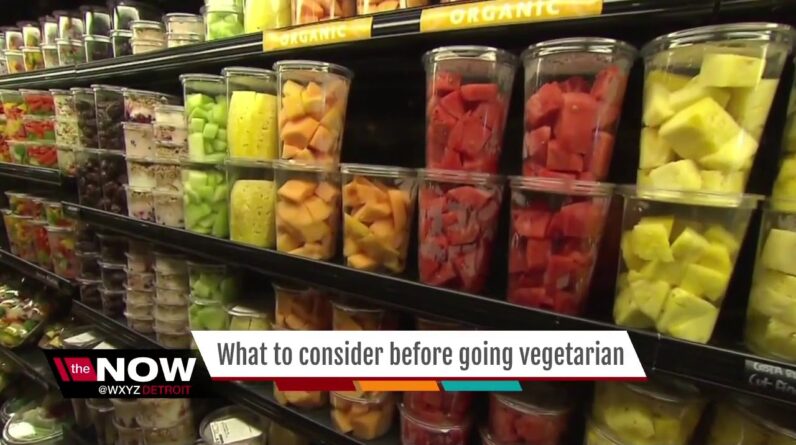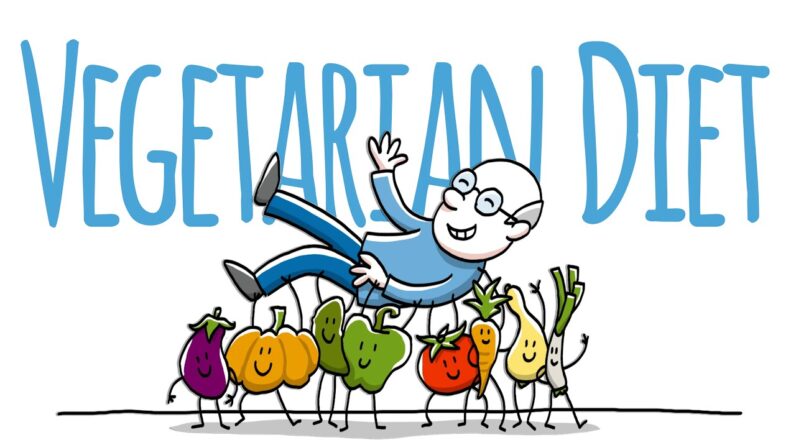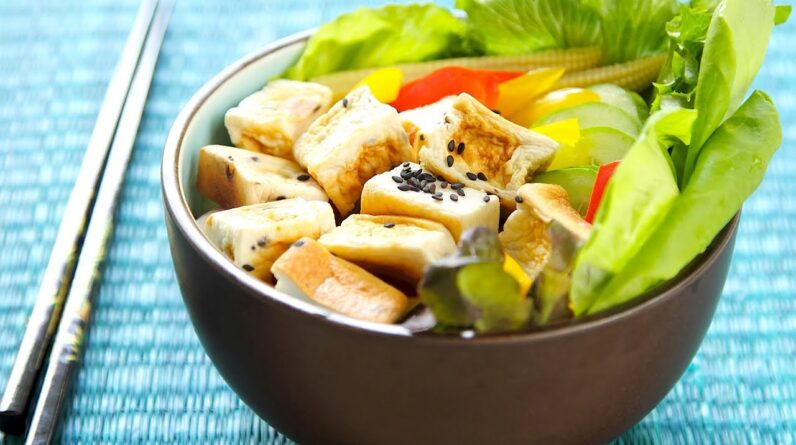
If you’re looking for suggestions on how to follow a healthy vegetarian diet, you’re in the right place. Many vegetarians find it challenging to get the necessary nutrition from their food choices, especially when it comes to protein. The key is to understand the alternative sources of protein available to you, such as grains like quinoa, lentils, beans, nuts, and seeds. It’s important to incorporate these protein-rich foods into your diet regularly. Additionally, make sure to include a wide variety of vegetables in your meals, choosing from different colors like green, red, and yellow, to ensure you’re getting a range of nutrients. Finally, don’t forget about whole grains, as they are often overlooked in both vegetarian and non-vegetarian diets. Staples like brown rice, quinoa, barley, couscous, and spelt can help you achieve a balanced and healthy vegetarian diet. Remember that eliminating animal protein doesn’t automatically mean a healthy diet, so pay attention to your food choices and make sure to balance your meals appropriately.
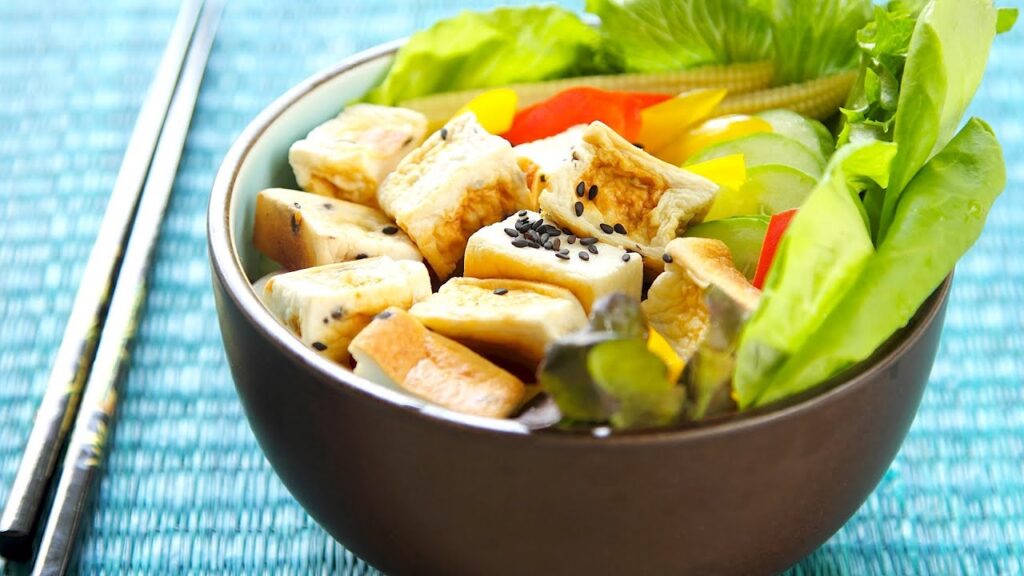
This image is property of i.ytimg.com.
Understanding Alternative Sources of Protein
Protein is an essential macronutrient that plays a crucial role in building and repairing tissues, as well as supporting various bodily functions. However, following a vegetarian diet means eliminating animal protein from your meals. But don’t worry! There are plenty of alternative sources of protein that can help you meet your nutritional needs.
Grains like quinoa are a fantastic option for vegetarians. Quinoa is a complete protein, meaning it contains all nine essential amino acids that our bodies cannot produce on their own. It is also high in fiber, iron, magnesium, and antioxidants. Adding quinoa to your meals not only boosts your protein intake but also provides a range of other beneficial nutrients.
Lentils and beans are another excellent source of protein. They are not only rich in protein but also low in fat and high in fiber. Furthermore, lentils and beans offer iron, folate, potassium, and antioxidants. Incorporating lentils, chickpeas, black beans, and other legumes into your diet can provide a filling and nutritious plant-based protein alternative.
Nuts and seeds are a versatile and convenient source of protein. Almonds, walnuts, chia seeds, and flaxseeds are just a few examples of protein-rich nuts and seeds that you can incorporate into your meals. These plant-based protein sources also offer healthy fats, fiber, vitamins, minerals, and antioxidants. Whether you sprinkle them on salads, mix them into smoothies, or use them in baking, nuts and seeds are a delicious way to boost your protein intake.
Remember, it’s important to prioritize protein and ensure that you are incorporating these alternative protein sources into your meals regularly. By doing so, you can meet your daily protein requirements and enjoy a well-rounded vegetarian diet.
Incorporating a Wide Variety of Vegetables
Vegetables are a crucial component of any healthy diet, and being a vegetarian provides an excellent opportunity to explore the vast array of colorful and nutrient-rich vegetables available to you. By incorporating a wide variety of vegetables into your meals, you can ensure that you are getting a diverse range of essential vitamins, minerals, and antioxidants.
When it comes to green vegetables, the options are endless. Leafy greens like spinach, kale, and Swiss chard are packed with vitamins A, C, K, and folate. They are also rich in minerals such as calcium, iron, and magnesium. Green vegetables like broccoli, asparagus, and green beans offer fiber, vitamins, and minerals, along with other health benefits.
Red vegetables, such as red bell peppers, tomatoes, and beets, provide a vibrant burst of color to your plate. These vegetables contain powerful antioxidants like lycopene and anthocyanins, which have been linked to various health benefits. They are also a good source of vitamins A and C, as well as potassium.
Yellow vegetables, including squash, corn, and yellow bell peppers, are packed with essential nutrients. They are rich in vitamins A and C, as well as potassium and fiber. Adding yellow vegetables to your meals not only adds visual appeal but also enhances the nutritional value of your plate.
By incorporating a variety of vegetables from different color groups, you can ensure that you are receiving a wide range of nutrients needed for optimal health. So, don’t be afraid to experiment with different vegetables and get creative in the kitchen!
Including Whole Grains in Your Diet
Whole grains are an essential part of a healthy vegetarian diet. They are a great source of fiber, vitamins, minerals, and antioxidants. Including whole grains in your meals can promote better digestion, regulate blood sugar levels, and provide a steady release of energy throughout the day.
Brown rice is a staple in many vegetarian diets. It is packed with fiber, B vitamins, and minerals like manganese and selenium. Brown rice is a versatile grain that can be used as a base for stir-fries, salads, or as a side dish for curries and stews.
Quinoa is often hailed as a superfood due to its impressive nutritional profile. It is a complete protein, meaning it contains all essential amino acids. Quinoa is also high in fiber, magnesium, iron, and antioxidants. It is a gluten-free grain that can be used in a variety of dishes, from salads to grain bowls.
Barley is a nutrient-dense grain that offers fiber, vitamins, minerals, and antioxidants. It has a nutty flavor and a chewy texture, making it a great addition to soups, stews, and salads. Barley is also known for its high soluble fiber content, which can help lower cholesterol levels and improve heart health.
Couscous is a type of pasta made from semolina wheat. Though not technically a whole grain, it is a popular choice in vegetarian meals due to its quick cooking time and versatility. Couscous can be seasoned and enjoyed as a side dish or used as a base for salads and pilafs.
Spelt is an ancient grain that is similar to wheat but has a nuttier flavor. It is high in fiber, protein, and various nutrients. Spelt can be used in baking, added to salads, or used as a substitute for rice or pasta dishes.
Experimenting with different whole grains can add variety and nutrition to your vegetarian meals. By incorporating a mix of brown rice, quinoa, barley, couscous, and spelt into your diet, you can enjoy a balanced and wholesome approach to vegetarian eating.
Considering Balanced Nutrition
When following a vegetarian diet, it’s crucial to ensure that you are getting a balanced mix of nutrients to support your overall health and well-being. Here are a few key considerations to keep in mind:
Understanding the Importance of Protein
Protein is not only essential for building and repairing tissues but also plays a crucial role in many bodily functions. As a vegetarian, it’s important to consume an adequate amount of protein from plant-based sources to meet your daily needs. Grains, legumes, nuts, and seeds discussed earlier are all excellent sources of protein.
Monitoring Fat Intake
While eliminating animal protein from your diet may lower your overall fat intake, it’s still important to be mindful of the types of fats you consume. Opt for healthy fats such as those found in avocados, nuts, seeds, and plant-based oils. Limit your intake of saturated and trans fats, which are often found in processed and fried foods.
Increasing Fiber Consumption
Fiber is an essential nutrient that aids digestion, promotes satiety, and helps maintain a healthy weight. Vegetarian diets naturally provide a good amount of fiber due to the emphasis on fruits, vegetables, legumes, and whole grains. However, it’s still important to ensure you are consuming an adequate amount of fiber each day to support optimal digestion and overall health.
By understanding the importance of protein, monitoring fat intake, and increasing fiber consumption, you can ensure that your vegetarian diet is providing you with all the necessary nutrients for optimal health.
Paying Attention to Food Choices
When following a vegetarian diet, it’s crucial to make informed decisions when it comes to your food choices. Being mindful of the nutrition content and quality of the foods you consume can help you maintain a balanced and healthy vegetarian lifestyle.
Making informed decisions involves considering the nutritional value of the foods you eat. Rather than focusing solely on calorie count, pay attention to the vitamins, minerals, and other nutrients that each food provides. Choose nutrient-rich options such as fruits, vegetables, whole grains, legumes, nuts, and seeds to nourish your body with a variety of essential nutrients.
Avoiding processed foods is another important aspect of maintaining a healthy vegetarian diet. Processed foods are often high in unhealthy fats, added sugars, and sodium, while lacking in essential nutrients. Instead, opt for whole, unprocessed foods whenever possible to fuel your body with the nutrients it needs.
By making informed decisions and choosing nutrient-rich, whole foods, you can ensure that your vegetarian diet is both nourishing and satisfying.
Planning Balanced Vegetarian Meals
Planning is key when it comes to following a balanced vegetarian diet. By incorporating protein, vegetables, and whole grains into your meals, you can ensure that you are getting the necessary nutrients for optimal health.
Including Protein, Vegetables, and Whole Grains
When planning your meals, aim to include a source of protein, a variety of vegetables, and a serving of whole grains. This combination ensures that you are getting a good mix of macronutrients, vitamins, and minerals.
For example, a balanced vegetarian meal could consist of grilled tofu or tempeh as the protein source, a mix of roasted vegetables like bell peppers, broccoli, and carrots, and a serving of quinoa or brown rice as the whole grain component. Feel free to get creative with your meal combinations to keep your taste buds excited and satisfied.
Adding Variety to Avoid Monotony
Eating the same foods day after day can lead to dietary monotony and may increase the risk of nutrient deficiencies. To avoid this, aim to incorporate a variety of plant-based proteins, vegetables, and whole grains into your meals.
Try different types of legumes, such as lentils, chickpeas, and black beans, to add variety and ensure a diverse nutrient profile. Experiment with a wide range of vegetables, both cooked and raw, to keep your meals interesting and provide a variety of vitamins and minerals. Additionally, don’t be afraid to try new whole grains like quinoa, barley, or spelt to keep your meals diverse and exciting.
Balancing Macronutrients
In addition to including a variety of food groups, it’s important to balance the macronutrients in your meals. Aim to include a mix of carbohydrates, proteins, and healthy fats to promote overall health and satiety.
Carbohydrates can be obtained from whole grains, fruits, and vegetables. Proteins are found in plant-based sources like legumes, tofu, tempeh, and seitan. Healthy fats can be obtained from avocados, nuts, seeds, and plant-based oils.
By planning balanced vegetarian meals that incorporate protein, vegetables, and whole grains, adding variety to your meals, and ensuring a good balance of macronutrients, you can enjoy a satisfying and nutritious vegetarian diet.
Supplementing with Key Nutrients
While a well-planned vegetarian diet can provide most essential nutrients, there are a few nutrients that may require extra attention. These key nutrients include vitamin B12, iron, calcium, and omega-3 fatty acids.
Vitamin B12
Vitamin B12 is primarily found in animal products, making it more difficult to obtain on a vegetarian diet. It is crucial for nerve function, DNA synthesis, and the production of red blood cells. To ensure you are getting enough, consider taking a vitamin B12 supplement or consuming fortified foods like plant-based milks, breakfast cereals, or nutritional yeast.
Iron
Iron is an essential mineral that plays a crucial role in carrying oxygen throughout the body. Vegetarians can obtain iron from plant-based sources such as dark leafy greens, legumes, tofu, and fortified cereals. To enhance iron absorption, pair iron-rich foods with a source of vitamin C, such as citrus fruits or bell peppers.
Calcium
Calcium is important for maintaining strong bones and teeth. While dairy products are a common source of calcium, vegetarians can obtain this mineral from plant-based sources like dark leafy greens, tofu, fortified plant-based milks, and calcium-set tofu. If needed, consider incorporating a calcium supplement into your routine or speaking with a healthcare professional for personalized advice.
Omega-3 Fatty Acids
Omega-3 fatty acids are essential fats that play a crucial role in brain health, heart health, and reducing inflammation. While fish is a common source of omega-3s, vegetarians can obtain these fats from plant-based sources such as walnuts, flaxseeds, chia seeds, and algae-based supplements.
Supplementing with vitamin B12, being mindful of iron and calcium intake, and incorporating omega-3-rich foods into your diet are important steps to ensure you are meeting your nutritional needs as a vegetarian.
Drinking Adequate Amounts of Water
Staying adequately hydrated is essential for overall health and well-being, regardless of dietary preferences. Water is involved in almost every bodily function, and being properly hydrated can support digestion, circulation, temperature regulation, and nutrient absorption.
The importance of hydration cannot be overstated. As a vegetarian, it’s crucial to prioritize drinking enough water throughout the day. Aim to drink at least eight glasses (64 ounces) of water daily, or more if you are very physically active or in a hot climate.
If plain water isn’t your thing, you can also meet your hydration needs by incorporating herbal teas, infused water, or water-rich foods like fruits and vegetables into your diet. Just remember to listen to your body and drink when you feel thirsty.
Some tips for staying hydrated include carrying a water bottle with you throughout the day, setting reminders to drink water, and flavoring your water with slices of citrus fruits or cucumber for added taste.
By making hydration a priority, you can support your overall health and well-being while following a vegetarian diet.
Incorporating Healthy Fats
When it comes to fats, not all are created equal. While it’s important to limit your intake of unhealthy trans fats, healthy fats are an essential part of a balanced vegetarian diet. Healthy fats provide energy, support cell growth, protect organs, and help absorb certain vitamins.
Choosing plant-based sources of healthy fats can provide numerous benefits. Avocados are a delicious source of monounsaturated fats, which can help reduce bad cholesterol levels. Nuts and seeds, such as almonds, walnuts, chia seeds, and flaxseeds, are rich in omega-3 fatty acids and provide a healthy dose of unsaturated fats. Plant-based oils like olive oil, coconut oil, and avocado oil are also excellent options for cooking and dressing salads.
On the other hand, it’s crucial to avoid unhealthy trans fats found in processed and fried foods. These fats can increase the risk of heart disease and other health problems. Be mindful of food labels and choose products that are free from trans fats.
Incorporating healthy fats into your vegetarian diet can provide vital nutrients and offer various health benefits. So, don’t shy away from avocados, nuts, seeds, and plant-based oils in your meals.
Conclusion
Following a healthy vegetarian diet is entirely possible with a little planning and knowledge about the right food choices. By understanding alternative sources of protein, incorporating a variety of vegetables, including whole grains in your meals, considering balanced nutrition, paying attention to food choices, planning balanced vegetarian meals, supplementing with key nutrients, drinking adequate amounts of water, and incorporating healthy fats, you can enjoy a nutritious and satisfying vegetarian lifestyle.
Remember, balance and variety are key. With a little creativity and mindfulness, you can embrace the diverse range of plant-based options available to you, nourish your body, and thrive as a vegetarian. So, lace up your apron, explore new recipes, and enjoy the journey of following a healthy vegetarian diet.

